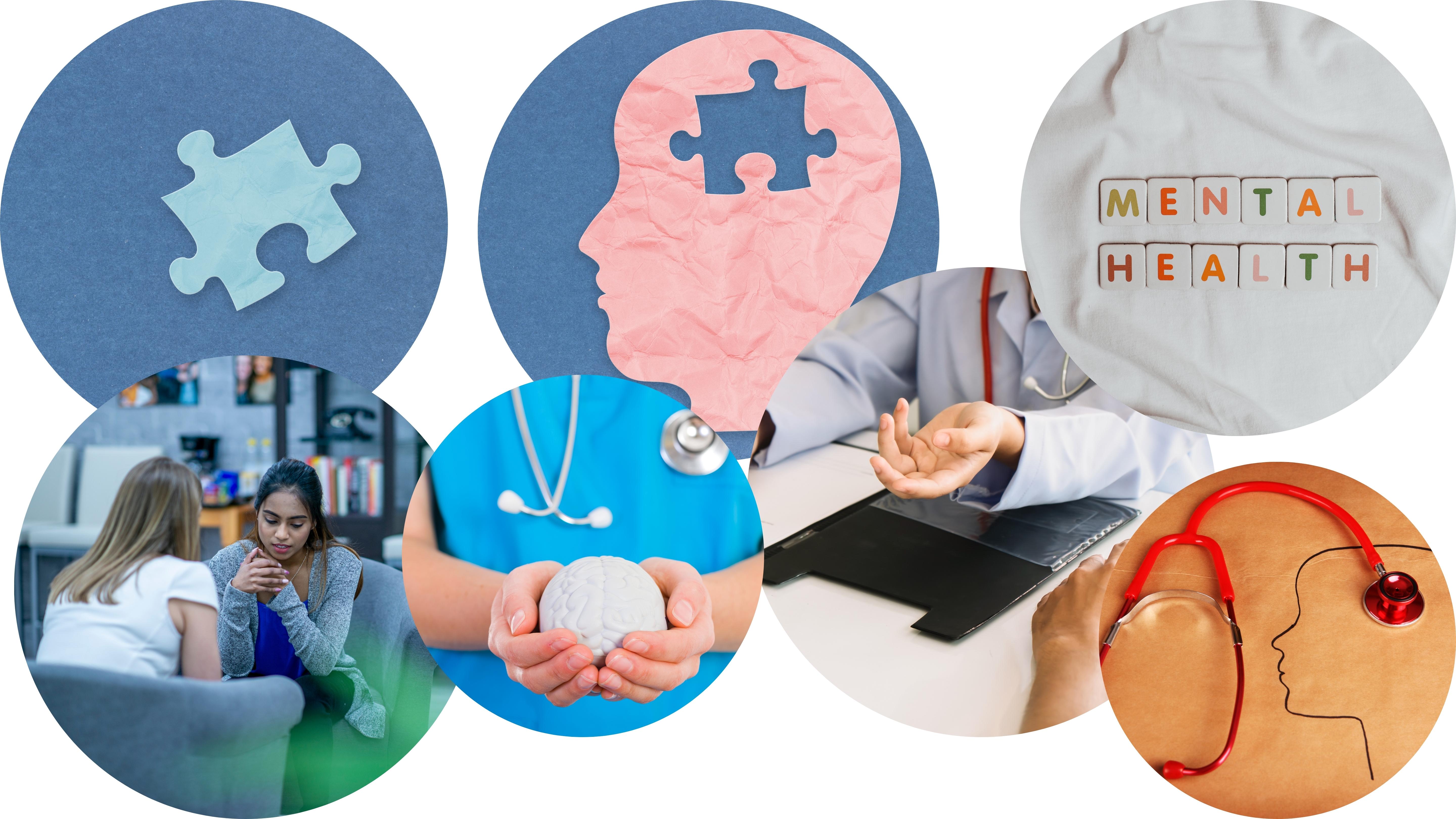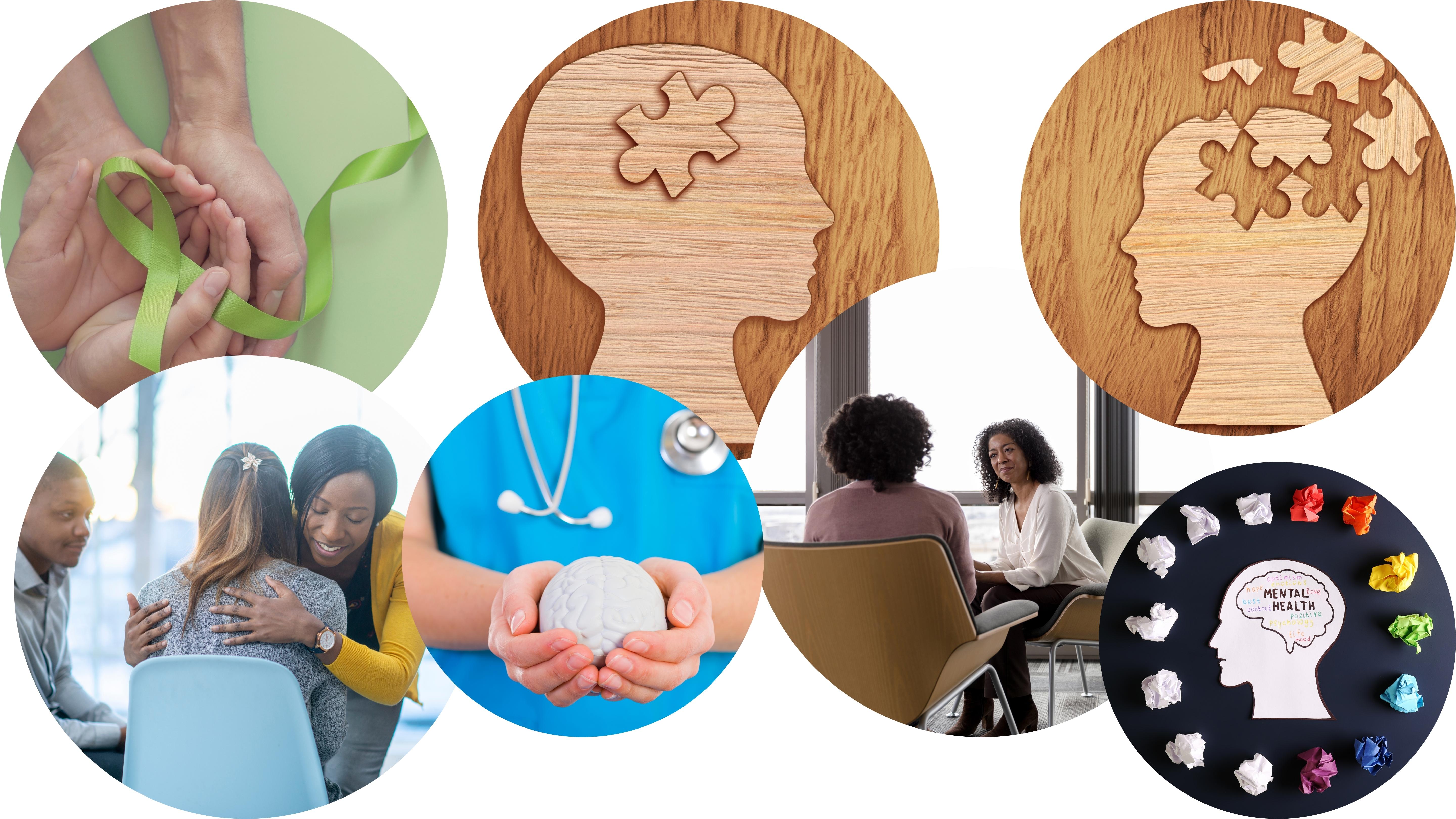-
GeneralGeneral
-
Global Mental Health Homepage


This course provides information on mental health conditions in the context of low- and middle-income countries (LMICs) as it relates to risk factors, the burden of mental illness, the impact of substance abuse on mental health disorders, and effective policies and interventions that can help improve mental health. By the end of this course, students will be better prepared to work as part of a team to effectively plan interventions to reduce the impact of mental health illness within a population.
The Global Health course, like all NextGenU.org courses, it is competency-based; competencies were developed in collaboration with global health and public health subject matter experts and take into consideration the mapping of key competencies required by the public health wider workforce to contribute to public health priority by the NHS Health Scotland and the New Global Health Concentration Competencies for the Master of Public Health (MPH) Degree from the Association of Schools & Programs of Public Health.
The course uses learning resources from accredited, world-class organizations such as the U.S. National Institutes of Health, Substance Abuse and Mental Health Services Administration, the World Health Organization and other professional and academic sources.
The course was designed by Hugo Rojas, MD, MSc; Margaret Niles, PhD, MEd, DipID ; Valeria Reynolds, MD, MPH; Juan Jose Pemintel, MD; Pablo Baldiviezo Rodriguez, MD, DiplEd. It was later reviewed by Magali Collonnaz MD, MPH, MSc; Anthony Schlaff MD, MPH; Pablo Baldiviezo Rodriguez, MD, MSc, DiplEd; Reisha Narine, BSc, MSc and Rhonda Prudent, BSc.
For publications on NextGenU.org’s courses’ efficacy, see NextGenU.org’s publication page. Subscribe to our newsletter to be notified of future updates, new courses, and to be part of our community.
There are four (4) modules to complete, which include:
- Module 1: Introduction to Global Mental Health
- Module 2: Epidemiology of Mental Health Conditions
- Module 3: Substance Abuse and Mental Health
- Module 4: Evidence-Based Interventions
The completion time for this course is estimated to be 96 hours which includes 61 hours of didactics and curated resources and 35 hours of work participating in activities and quizzes to assist the student in the synthesis of the materials. This course is equivalent to 2 credit hours.
Upon completion of the training (4 modules), participants will need to complete a “Final Exam”. The final exam will be designed so that participants can have three opportunities to answer correctly until the required score of 70% or higher is obtained.
At the end of each module, there is a practice quiz of multiple-choice questions. At the end of the course, after you’ve completed each lesson, quiz, and learning activity, you’ll have access to a final exam of multiple-choice questions and a chance to evaluate this course. Once you’ve passed that last test, you will be able to download a certificate of completion from NextGenU.org and our course’s co-sponsoring organizations (listed above). We keep all of your personal information confidential, never sell any of your information, and only use anonymized data for research purposes. We are also happy to report your testing information and share your work with anyone (your school, employer, etc.) at your request.
Engaging with this Course:
This free course is primarily intended for public health students, public health professionals or people working in the mental health field (non-clinicians) who would like to learn more about risk factors associated with mental health disorders, prevention, and treatment. The course can also be taken by clinicians who would like to learn more about global mental health with learning resources and titles that have been specifically listed as optional readings for clinicians ONLY.
To obtain a certificate, a learner must successfully complete:- All the reading requirements,
- All quizzes and pass with 70% having unlimited attempts,
- All case studies,
- The final exam with a minimum of 70% and a maximum of 3 attempts, and
- The self and course evaluation forms.
NextGenU.org is happy to provide your institution with:
- A link to and description of the course training, so they can see all its components, including the cosponsoring universities and other professional organization cosponsors;
- Your grade on the final exam;
- Your work products (e.g. case study activities), and any other required or optional shared materials that you produce and authorize to share with them;
- Your evaluations -- course, and self-assessments;
- A copy of your certificate of completion, with the co-sponsoring universities and other organizations listed.
To obtain a degree, NextGenU.org co-sponsors degree programs with institutional partners. To obtain a full degree co-sponsored with NextGenU.org, registrants must be enrolled in a degree program as a student of a NextGenU.org institutional partner. If you think that your institution might be interested in offering a degree with NextGenU.org, contact us.
We hope that you will find this a rewarding learning experience, and we count on your assessment and feedback to help us improve this training for future students.
Here are the next steps to take the course for credit:
- Complete the registration form.
- Take the pre-test.
- Begin the course with Module 1: Introduction to Global Mental Health. In each lesson, read the description, complete all required readings and any required activity, and take the corresponding quizzes.
*The previous version of this course is also available here for your reference but is not available for registration. Only students that were registered before can complete it.
-
Module 1: Introduction to Global Mental Health
 Instructional Goals covered in this module:
Instructional Goals covered in this module:- Illustrate the basic concepts of mental health and mental illness as a holistic concept, the gaps in mental health provision and resources, and its interrelatedness with sustainable development goals.
-
Module 1: Lesson 1: Basic Concepts and Objectives of Global Mental Health
Student Learning Outcomes:
Upon completion of this lesson, you will be able to:
- Recall the definition of mental health and mental health disorders.
- Describe the interrelatedness of mental health with physical health.
- Understand the impact of an individual's mental health on their inner circle.
- Outline the historical milestones in mental health care.
- Identify the role of mental health in achieving the Sustainable Development Goals (SDGs).
- Identify the gaps in mental health treatment, research, and resources.
10 URLs -
Module 1: Lesson 2: Overview of Mental Health Disorders Towards Accomplishing the Sustainable Development Goals
Student Learning Outcomes:
Upon completion of this lesson, you will be able to:- Outline the approach to the diagnosis and classification of mental disorders.
- Identify the components of a system to address mental health disorders globally.
- Evaluate the strategies currently implemented in your country to achieve the Sustainable Development Goals (SDGs) related to mental health.
6 URLs, 1 Forum, 1 Quiz -
Module 2: Epidemiology of Mental Health Conditions
 Instructional Goals covered in this module:
Instructional Goals covered in this module:- Analyze the risk and protective factors of mental health, including social inequalities, the impact of mental health on the global burden of disease, and addressing vulnerability with an ethical approach.
-
Module 2: Lesson 1: Influence of Risk Factors on Global Mental Health
Student Learning Outcomes:
Upon completion of this lesson, you will be able to:- Outline the potential risk and protective factors associated with mental health.
- Illustrate the core social determinants of mental health at the individual and population levels.
5 URLs -
Module 2: Lesson 2: Vulnerability to Mental Health Disorders
Student Learning Outcomes:
Upon completion of this lesson, you will be able to:- Identify specific populations with increased vulnerability to mental health or substance use disorders.
4 URLs, 1 Forum -
Module 2: Lesson 3: Global Mental Health Disorders in an Epidemiological Context
Student Learning Outcomes:
Upon completion of this lesson, you will be able to:- Characterize mental disorders from an epidemiological approach.
- Examine the mental health epidemiology profile of your country.
8 URLs, 1 Forum, 1 Quiz -
Module 3: Substance Abuse and Mental Health
 Instructional Goals covered in this module:
Instructional Goals covered in this module:- Determine the burden that substance abuse can inflict on mental well-being, its social repercussions, and the application of communication in reducing discrimination.
-
Module 3: Lesson 1: The Influence of Substance Abuse Disorders on Global Mental Health
Student Learning Outcomes:
Upon completion of this lesson, you will be able to:- Illustrate the relationship between substance use dependence and mental health disorders.
- Discuss the social repercussions that can affect populations with substance use and mental disorders.
Click here to start this lesson4 URLs, 1 Forum -
Module 3: Lesson 2: Screening and Treatment Programs
Student Learning Outcomes:
Upon completion of this lesson, you will be able to:- Outline the screening and treatment strategies for substance abuse in the context of mental health disorders.
1 URL -
Module 3: Lesson 3: Role of Advocacy in Substance Abuse on Mental Health
Student Learning Outcomes:
Upon completion of this lesson, you will be able to:- Design an educational tool to raise awareness of the impact of substance abuse on mental health.
1 URL, 1 Forum, 1 Quiz -
Module 4: Evidence-Based Interventions
 Instructional Goals covered in this module:
Instructional Goals covered in this module:Demonstrate critical awareness of the engagement with mhGAP evidence-based intervention framework to discuss strategies to implement and monitor an intervention. - Synthesize knowledge and experience to develop a sustainable plan for implementing an intervention that includes a support program to tackle a mental illness issue of public health significance.
-
Module 4: Lesson 1: Planning Interventions Based on Recognized Guidelines
Student Learning Outcomes:
Upon completion of this lesson, you will be able to:- Articulate the objectives of the WHO’s mental health action program.
- Identify resources and actions that can be used to achieve mental health action program objectives.
- Outline the principles for essential care and practice in relation to mental, neurological, and substance use disorders.
- Assess the roles and relationships of entities related to the mental health services framework with regard to community needs and access.
Click here to start this lesson5 URLs, 1 Forum -
Module 4: Lesson 2: Implementing Mental Health Interventions
Student Learning Outcomes:
Upon completion of this lesson, you will be able to:- Distinguish the social and economic barriers to implementing policies or practices in your setting.
- Describe workforce development strategies to improve mental health care in low and middle-income countries.
- Create an evidence-based intervention to improve mental health care in your country/region.
7 URLs, 1 Forum, 1 Quiz -
Course and Self Evaluation & Certificate
 In this section, you can provide feedback about this course to help us make NextGenU.org better. Once evaluations are completed, you will be able to download your certificate of completion.
In this section, you can provide feedback about this course to help us make NextGenU.org better. Once evaluations are completed, you will be able to download your certificate of completion.
Global Mental Health
Register for this course to access the discussion forums

